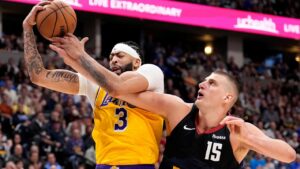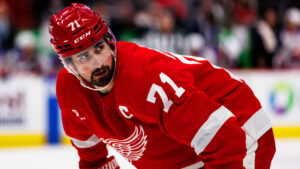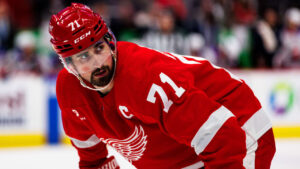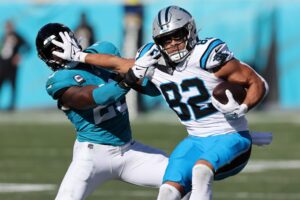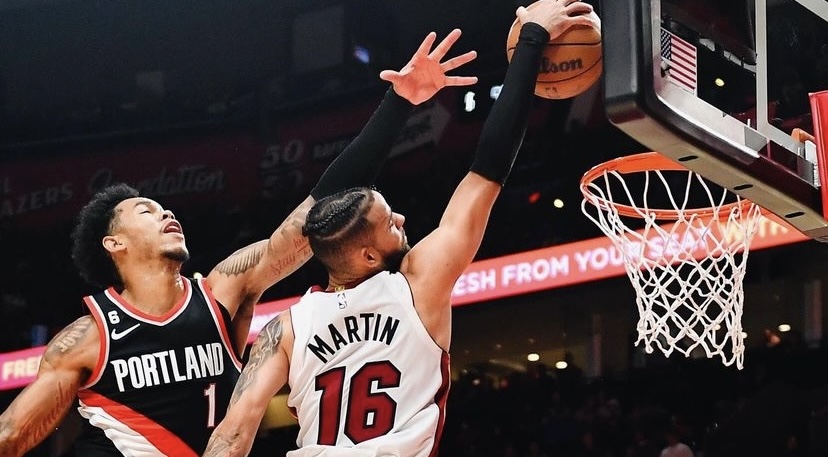
The Miami Heat will play the Portland Trail Blazers for the second game since Damian Lillard asked to be traded to South Beach.
With Lillard now in Milwaukee and the Blazers embarking on what appears to be a protracted rebuild, Miami has essentially remained in the same position, choosing instead to make small moves like switching Terry Rozier for Kyle Lowry’s expiring deal, which was later bought out. Rozier has been distinctly “meh” since moving to Miami, averaging just 15.5 points on 41% shooting and a concerning 29% from beyond the arc. In the 11-14 games that Rozier has played, the Heat have also been largely unimpressive; they are at 39-33 and will once again face the play-in round.
Miami is the superior club in spite of that, and we may say the same for the remainder of Portland’s games this season. Even though Shaedon Sharpe has been sidelined for weeks due to an abdominal ailment, Portland will probably be missing almost all of the veterans once more, and Miami appears to be playing closer to full strength than they have in recent games. Toumani Camara, who was perhaps the Blazers’ best player in their most recent loss to the Atlanta Hawks, will also be absent for Portland.
Dalano Banton of the Blazers, who is averaging 22-6-4 and 1.3 steals in his past four games, will have more opportunity to demonstrate why he belongs in the NBA. If he can maintain his 35% shooting from beyond the arc, he will. Scoot Henderson will have more time to acclimate to the quickness and agility of an NBA game. Beyond bragging rights between a lottery team and a team aiming to upset the system by making a long playoff run for the second straight year, there won’t be much to see here.
Miami Heat (39-33) vs. Portland Trail Blazers (19-54) on Friday, March 29 at 5 p.m. Pacific
Trail Blazers: Robert Williams III (out); Malcolm Brogdon, Toumani Camara, Shaedon Sharpe, Anfernee Simons, and Deandre Ayton (questionable); Jerami Grant (doubtful).
Heat-related injuries: Tyler Herro and Duncan Robinson (out); Jaime Jaquez Jr., Kevin Love, Jimmy Butler, and Caleb Martin (probably).
Concerning the Opponent
According to Ira Winderman of the South Florida Sun Sentinal—a name that, to be honest, sounds more like a fable than a journalistic organization—Tyler Herro is not pleased with the way that his injury has been covered:
The Heat were the subject of a story by Shams Charania of The Athletic that began, “Tyler Herro is the big worry.” It’s been a while since he played. It’s difficult to predict when he may return or become available. A few of weeks ago, he received a PRP shot. The timeline still doesn’t make sense.” Herro responded sharply on social media after that. Herro replied, “I just had a great workout, but ain’t coming back no time soon,” in what appeared to be a snarky clapback. While the rest of the team was off on Wednesday, the fifth-year Heat guard did work out hard. The objective, according to a source familiar with the strategy, was to take a week off after receiving a platelet-rich plasma injection on March 15 for medial tendonitis in his right foot, and then ramp up over the course of two weeks. If this timeline is followed, the earliest possible return date would be late next week.
Despite his advanced (for NBA players) age, Matt Weiner of All U Can Heat discusses the role Kevin Love can play on a Miami team hoping for a lengthy postseason run:
Love isn’t playing as much as he should this season, but in the 14 games he has missed, his significance to the Heat’s championship hopes has become clear. During that time, the Heat are 2-7 versus playoff teams; their two victories came against the Cleveland Cavaliers without Donovan Mitchell. The Heat’s losses to the Pelicans and Warriors at the Kaseya Center last Friday and Monday may have been the low points of this run. Furthermore, in 43% of the 14 games that Love has missed, the Heat’s offense has been limited to 100 points or less.
In 21 out of the 58 games played before to Love’s first-game absence on February 29, the Heat had not scored 100 points or fewer. Without Love to worry about, opponents have dispersed zones to undermine the Heat’s inside attack offensive strategy. The issue is that three-point shooting, which is supposed to be the solution, hasn’t worked well enough. The Heat have only shot 40% or better once in the eight losses they have suffered since Love’s absence.
The Athletic’s William Guillory (subscription needed) discusses Heat youngster Jaimie Jaquez Jr.’s contributions to “Heat Culture”:
What then was the breaking point for Jaquez Jr.? It had beyond even his father’s perception by the time he started high school. The younger Jaquez would come to school every day before six in order to complete additional work before classes began. Later in the day, he rehearsed with the varsity team following school. He eventually started working out late at night when he thought there was still more to be done. Jaquez Sr. had to intervene at that point. He gave his OK for the additional effort, but he just asked that you at least eat dinner before returning to the gym.
Jaquez Jr.’s answer? He would quip, “You don’t want me to be great?” Unbeknownst to him at the moment, Jaquez Jr. was already embracing a cornerstone of Miami Heat culture: excellence necessitates a mental edge that can only be attained via unwavering dedication and accountability. It makes sense that years later, Jaquez Jr. and the Heat not only connected but also realized they were a terrific fit.

